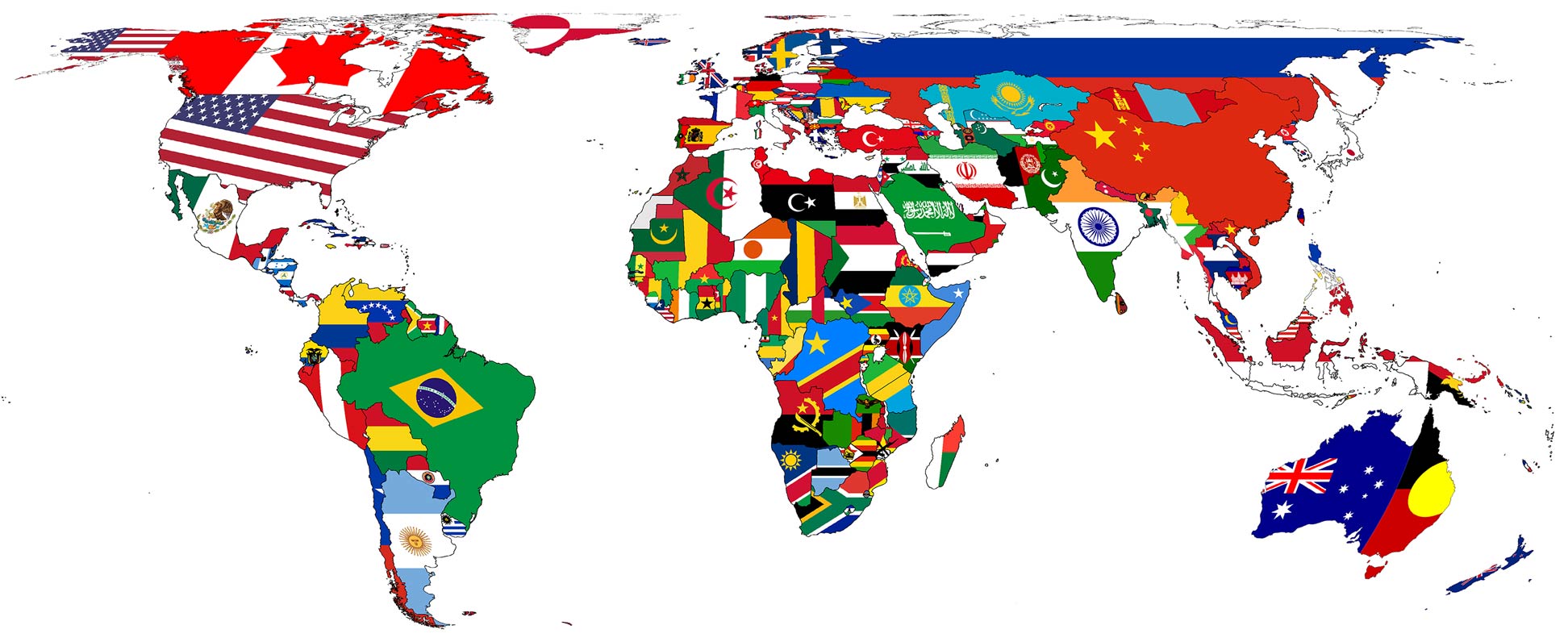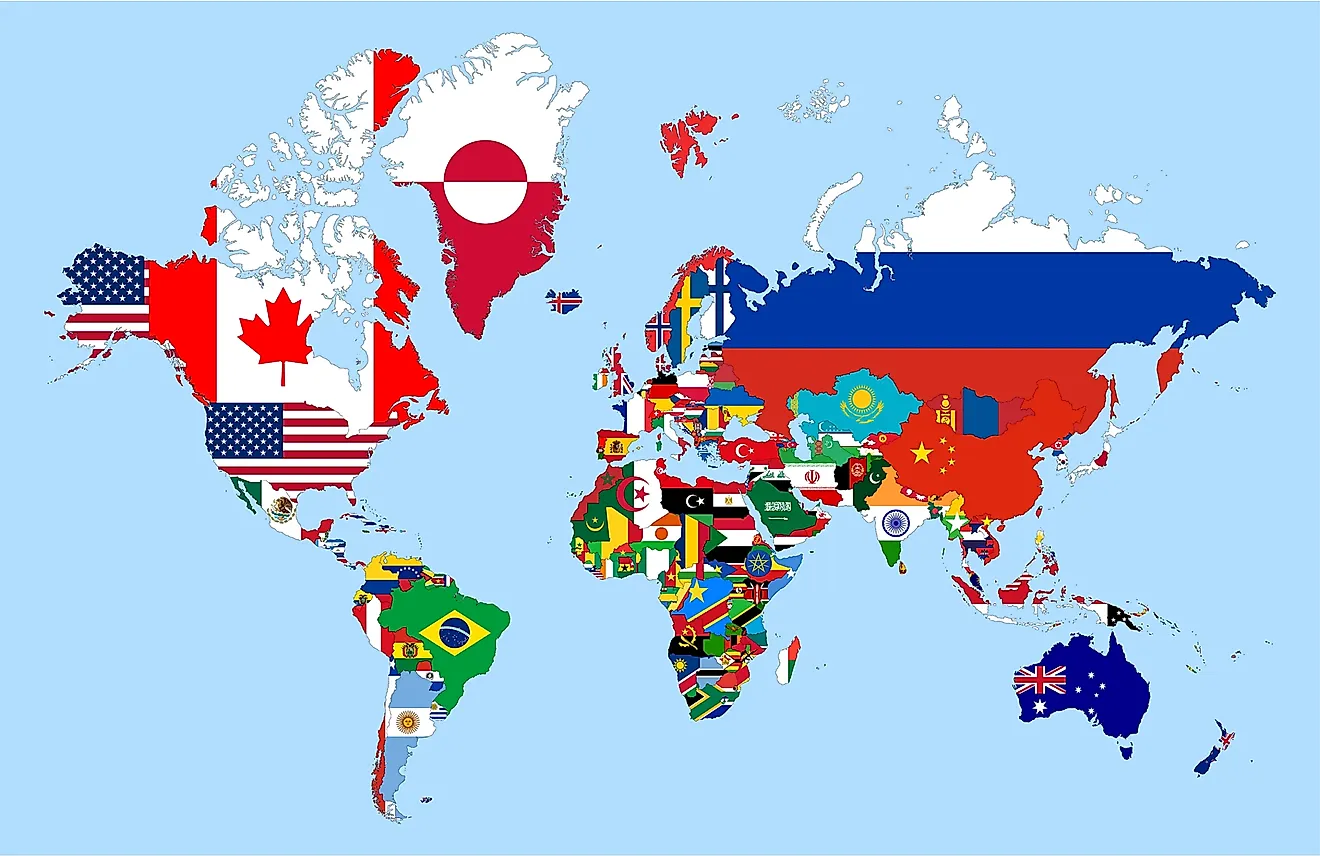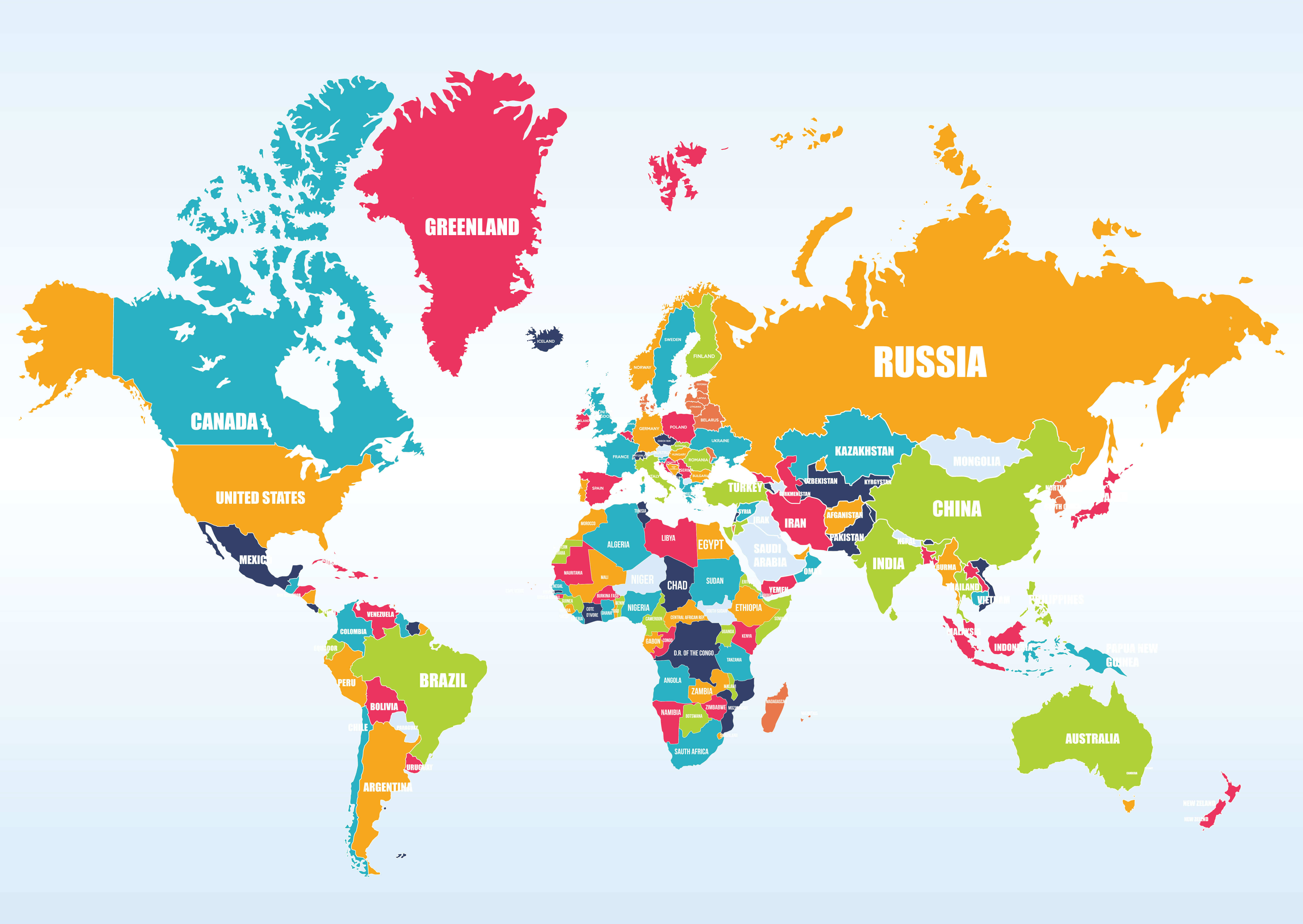Exploring Countries With W - A Global Look
Have you ever stopped to think about countries and their names, perhaps even wondering if any begin with a particular letter? It's a rather interesting thought experiment, isn't it? Many people, when asked to name places around the globe, naturally picture big, independent nations like the United States or Japan. You know, the ones you see on maps with their own governments and borders. But what happens when we look for those starting with the letter 'W'? The answer might just surprise you a little, in a way that changes how you think about geography.
The truth is, when we talk about countries that are truly sovereign, meaning they are fully independent states recognized by others, there aren't any whose names actually kick off with the letter 'W'. This can be a bit confusing, especially since there are places that definitely have 'W' at the start of their names and seem very much like countries. So, what's the real difference between these places that begin with 'W' and what we typically consider a full-fledged nation? It's a good question, and one that gets at the heart of how we classify places on our planet.
This discussion will explore the nuances of geographical naming, shedding some light on why the letter 'W' is such a rare sight at the start of a country's official name. We'll look at the distinctions between sovereign nations and other territories or regions that are often mistaken for them. You will, for example, get to hear about places that come close to being called "countries with W" and why they don't quite fit the usual description. It's quite fascinating, really, how language and history play a part in all of this, as a matter of fact.
Table of Contents
- What's the Deal with Countries Starting with W?
- Are There Any Sovereign Countries with W?
- What About Places That Seem Like Countries with W?
- Digging Deeper into Names - Why So Few Countries with W?
- Where Can We Find Countries with W in Their Name?
- A Closer Look at Notable Countries with W Connections
- Wales - A Special Case Among Countries with W
- Western Sahara and Wallis and Futuna - Other Countries with W Mentions
What's the Deal with Countries Starting with W?
When you start to think about the names of places across the globe, it's pretty common to wonder about how many countries begin with each letter of the alphabet. For the letter 'W', this question brings up some interesting points about what we truly mean when we say "country." You see, there are quite a few territories, different regions, and what we call constituent countries whose names do, in fact, start with 'W'. However, the surprising bit is that there aren't any fully independent, sovereign countries that fit this description. It's a subtle but important distinction, you know, for anyone who enjoys learning about world geography.
So, what exactly makes a place a "country" in the way most people think of it? For many of us, the idea of a country usually brings to mind places that are officially recognized as independent nations, like the United States or Japan, as we mentioned earlier. These are places with their own governments, their own laws, and a seat at the global table, so to speak. But then you have other places that might feel like countries, or are even called countries in some contexts, but don't quite have that full independence. This can make the whole topic of "countries with W" a bit more involved than one might first expect, to be honest.
The information available often presents lists of places around the world, sometimes including population figures, how many people live per square mile, and the overall land size. These lists can be very helpful for getting a general idea. But when you specifically search for "countries with W," you find that the list of truly independent nations is empty. It's a unique situation, and one that tends to spark curiosity among those who are interested in global facts. This absence is not just a random occurrence; there are some very good reasons behind it, which we'll get into a little later.
Are There Any Sovereign Countries with W?
To put it simply, if you're looking for a country that is a completely independent nation and whose name starts with the letter 'W', you won't find one. This is a fact that often catches people off guard, especially since there are so many other letters that begin the names of various countries around the world. So, when someone asks, "Are there any sovereign countries with W?", the straightforward answer is no. This means that places like Germany, France, or Canada, which are independent, have names that start with other letters, naturally.
The concept of a "sovereign country" is quite specific. It means a place that governs itself, makes its own decisions without outside interference, and is recognized by most other independent nations as a distinct entity. For example, when you think of countries, you probably think of those that have their own representation at the United Nations, or that sign international treaties on their own behalf. None of the places whose names start with 'W' currently hold this status. This can be a bit surprising, especially if you were hoping to count many on your fingers, you know?
So, while the world is full of interesting places, and many of them have names that begin with all sorts of letters, the letter 'W' stands out because it doesn't lead off the name of any truly independent nation. This is a key point to remember when discussing "countries with W" because it helps clarify the difference between a fully independent state and other types of territories or regions that might have a similar feel or status in some ways. It's a very particular detail that makes this letter's case unique, in some respects.
What About Places That Seem Like Countries with W?
Even though there are no sovereign countries starting with 'W', there are definitely places that come very close to fitting the bill, or are considered countries in a different sense. These are often constituent countries, like Wales, or territories with unique political situations, such as Western Sahara. You might also find other geographical areas or dependencies that begin with 'W'. So, while they might not be independent nations, they are certainly notable places that often come up in discussions about "countries with W." It's a bit like saying a state in the U.S. is a "country" in a certain context, but not an independent one, you know?
The distinction often lies in their political status. A constituent country, like Wales within the United Kingdom, has its own distinct identity, culture, and often a degree of self-governance, but it's still part of a larger sovereign state. Then there are territories, which might be administered by another country or have a disputed status, meaning their independence isn't universally recognized. These places often have a history and a population that make them feel very much like countries, even if their political standing is different. This is why when people search for "countries with W," these places frequently appear in the results, as a matter of fact.
It's interesting to consider that whether it's a part of a larger nation or a place with an uncertain political future, there's often more to these names than what first meets the eye. You might see lists that include these places, and they're important to know about for geographical knowledge. But it's important to remember that their classification differs from that of a fully independent country. This nuance is pretty significant when you're trying to get a complete picture of the "countries with W" discussion, in a way.
Digging Deeper into Names - Why So Few Countries with W?
The fact that no sovereign countries begin with 'W' isn't just a random happenstance; it's mostly due to a mix of language patterns and historical developments. Think about it: many geographical names around the world simply don't translate into English words that start with 'W'. This letter isn't as common as others in the initial sounds of place names across different languages, especially those that formed the basis for many country names we know today. It's a rather interesting linguistic quirk, if you think about it.
Furthermore, as new countries have come into being throughout history, they've often held onto names that reflect their past, their culture, or their local languages. These names, for various reasons, just don't happen to start with 'W'. It's not like there's a global conspiracy against the letter 'W'; it's more about how names evolve and are preserved over long periods of time. So, when you look at an alphabetical list of countries, you'll see a lot of variety, but 'W' remains notably absent at the very beginning of independent nation names, you know?
This absence really highlights how language and history shape our world map. The names of places often carry deep meaning and connections to their heritage. And sometimes, those historical and linguistic roots just don't produce a name that starts with 'W'. It's a simple explanation, but it tells us a lot about the cultural and historical forces that influence how places are named and recognized. This is why the topic of "countries with W" often leads to discussions about etymology and historical geography, as a matter of fact.
Where Can We Find Countries with W in Their Name?
While no independent countries start with 'W', that doesn't mean the letter is entirely absent from country names. Actually, you can find 'W' in the middle or at the end of quite a few country names. This is a different way to think about "countries with W" and it opens up a whole new set of places to consider. For example, if you're looking for countries that contain the letter 'W' anywhere in their name, the list becomes much longer and more diverse. It's a good way to still include the letter 'W' in your geographical explorations, you know?
Some well-known examples of countries that include the letter 'W' are Botswana, a nation in Southern Africa known for its wildlife; Eswatini, a small kingdom also in Southern Africa; Kuwait, a country in Western Asia; Malawi, another country in Southern Africa; and New Zealand, an island nation in the southwestern Pacific Ocean. These are just a few instances where the letter 'W' appears, showing that it's present in the global naming scheme, just not at the very beginning of a sovereign country's name. So, you can learn about all these places from various articles that list countries containing 'W', which is pretty neat.
It's also worth noting that while English has no countries that end with 'W', other languages might have place names that do. However, in the context of commonly recognized country names in English, the letter 'W' typically appears somewhere in the middle of the word, if at all. This distinction helps clarify the original question about "countries with W" by showing that the letter is indeed part of the global naming tapestry, just not in the specific way some might initially imagine. It's a subtle but important point, really.
A Closer Look at Notable Countries with W Connections
When people talk about regions and territories that start with 'W', a few prominent places often come up. These are Wales, Western Sahara, and Wallis and Futuna. These locations, while not all sovereign countries in the traditional sense, are significant and frequently discussed when the topic of "countries with W" arises. Each of them has a distinct story and a unique place on the world map, making them worthy of a closer look. They represent different categories of geographical entities, which is quite interesting.
Wales, as we touched on earlier, is a constituent country of the United Kingdom. It is celebrated for its truly lively way of life, its very old stories, and its natural beauty. From Cardiff, which is a rather active main city, to the quiet, calm spaces of Snowdonia National Park, Wales offers a lot to see and experience. It has its own distinct culture, its own language, and a history that is certainly worth exploring. So, while it's part of the UK, it has a strong individual identity, which is why it often comes up in conversations about "countries with W."
Then there's Western Sahara, a territory located in North Africa. It sits along the Atlantic Ocean and shares borders with Morocco to the north, Algeria to the northeast, and Mauritania to the east and south. This region is a disputed territory, meaning its political status is not universally agreed upon. It's a complex situation with a long history, and it's a place that definitely starts with 'W'. Lastly, Wallis and Futuna is a French island collectivity in the South Pacific. These islands are beautiful and have their own local governance, though they remain under French administration. These three places are the ones most often mentioned when people are curious about "countries with W" in any form.
Wales - A Special Case Among Countries with W
Wales holds a very particular position when we talk about "countries with W." It is, in fact, the only country in the United Kingdom that is also commonly referred to as a "country" in its own right, despite being part of a larger sovereign state. This unique status means it possesses a distinct identity, separate from England, Scotland, and Northern Ireland, even though they all form the United Kingdom. People often wonder about its exact classification, and it's a rather good example of how geographical terms can have different meanings, depending on the context.
Its distinctness comes from its deep-rooted culture, its very old language (Welsh), and a history that stretches back thousands of years. You can see this in its castles, its traditions, and the way people live there. Even though it shares a government with the rest of the UK, Wales has its own parliament, which makes decisions on many internal matters. This level of self-governance contributes to its perception as a "country" in its own right. So, when someone asks about "countries with W," Wales is typically the first and often only place that comes to mind for many people, which is understandable.
Learning about Wales offers a fascinating look into how national identity can thrive within a larger political structure. It shows that being a "country" isn't always about full independence but can also be about a strong cultural and historical heritage. This makes Wales a truly special entry in any discussion about places that start with the letter 'W', and it's certainly a place worth exploring further for its unique characteristics. It's quite a compelling example, actually, of a "country with W" that defies simple categorization.
Western Sahara and Wallis and Futuna - Other Countries with W Mentions
Beyond Wales, two other significant places that begin with 'W' are Western Sahara and Wallis and Futuna. These are often included in lists of places starting with 'W', though their political statuses differ greatly from that of a fully independent country. Western Sahara, for example, is a territory in North Africa that has been the subject of a long-standing dispute. Its borders touch Morocco, Algeria, and Mauritania, and it faces the Atlantic Ocean. This area is a key point of discussion in international relations, as its future remains uncertain. It's a very important place, you know, when considering all the "countries with W" that aren't sovereign.
Wallis and Futuna, on the other hand, is a collection of islands in the Pacific Ocean that are a French overseas collectivity. These islands are beautiful and remote, with a unique culture and way of life. While they have a degree of local autonomy, they are ultimately governed by France. So, they are not independent nations, but they are certainly significant geographical entities whose names begin with 'W'. These two places, along with Wales, are the most commonly cited when people compile lists of places that start with this particular letter, as a matter of fact.
It's interesting to see how the definition of "country" can vary, and how these places fit into the broader picture. Whether it's a disputed territory like Western Sahara or an overseas collectivity like Wallis and Futuna, they all contribute to the global tapestry of places that begin with 'W'. They might not be sovereign nations, but they are certainly important and distinct parts of the world, each with its own stories and characteristics. This makes the search for "countries with W" a more nuanced exploration than one might initially guess, in a way.
To recap, while there are no fully independent, sovereign countries that begin with the letter 'W', the discussion about "countries with W" often includes notable territories and constituent countries like Wales, Western Sahara, and Wallis and Futuna. The absence of sovereign nations starting with 'W' is largely due to linguistic and historical factors, as many geographical names do not translate into English words beginning with this letter. However, the letter 'W' does appear within the names of several independent countries, such as Botswana, Eswatini, Kuwait, Malawi, and New Zealand. This overview helps to clarify the different ways we can think about places whose names are connected to the letter 'W'.
- How To Make A Woman Queef
- Pat Monahan Wife
- Taylor Frankie Paul High School
- Max Amini Married
- Usain Bolts Real Name

List Of All Countries

List Of Countries In The World

World Map With Countries